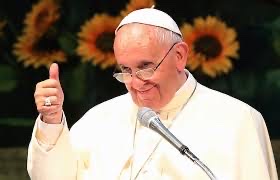The Death of Canon 188.4: Why Kurgan’s Fantasy Collapses Under the Weight of Actual Canon Law
Let’s cut through the fog of pseudo-theological bravado and self-declared “Catholic supremacy” that clouds The Kurgan’s arguments like incense in a burning house. For years, he has clung to a delusional interpretation of Canon 188.4 of the 1917 Code of Canon Law as if it were a holy cudgel meant to smite the entire post-Vatican II hierarchy. According to his view, the moment Vatican II so much as stirred, every bishop, priest, and cardinal magically became a heretic, instantly lost their office, and ceased being Catholic—all because of a single line in canon law he doesn’t understand.
But canon law is not a toy. It’s not a Lego set you can reassemble however you please. It has structure, language, context—and most importantly, authority. And that’s where Kurgan’s theory goes to die.
Canon 2227: The Canon Kurgan Doesn’t Want You to Read
Let’s begin with a canon that utterly demolishes his entire house of sedevacantist cards: Canon 2227. This canon clearly states that penalties—especially latae sententiae (those automatic penalties Kurgan loves so much)—do not apply to bishops and cardinals unless they are explicitly mentioned:
"Nisi expresse nominentur, S. R. E. Cardinales sub lege poenali non comprehenduntur, nec Episcopi sub poenis latae sententiae suspensionis et interdicti"
Translation: Unless expressly named, Cardinals of the Holy Roman Church are not included under penal law, nor are Bishops subject to latae sententiae penalties of suspension and interdict.
Let me repeat that for the faithful in the back: Unless a law names bishops or cardinals, it does not touch them.
And Canon 188.4? It doesn’t name bishops or cardinals. Oops.
Canon 2227, §1 also states:
“A penalty cannot be imposed or declared against those mentioned in Canon 1557 §1, except by the Roman Pontiff.”
And Canon 1557 §1 tells us who those people are:
"Only the Roman Pontiff has the right to judge: (1) those who hold supreme power; (2) Cardinals; (3) Legates of the Apostolic See and, in criminal cases, even bishops, including titular bishops."
In plain English: Only the Pope can judge a bishop. No one else. Not me. Not you. Not The Kurgan. And not Canon 188.4.
“Cleric” Doesn’t Mean What He Thinks It Means
Another foundational flaw in Kurgan’s theory is his convenient misunderstanding of the word “cleric.” He tosses it around like it applies to anyone in a cassock—from altar boys to cardinals. But canon law is far more precise.
In the 1917 Code, clerics are defined in a way that excludes bishops from being casually lumped into penalties unless explicitly stated. In canons dealing with penalties (e.g., 2227, 2398), bishops are either excluded or named separately, because they are ordinaries, and possess jurisdiction. Priests do not.
Kurgan has quoted the general dictionary entry for “cleric” from New Advent, ignoring the canonical usage which Dom Augustine clarifies extensively.
The Ghost of Dom Augustine
In Dom Augustine’s masterful commentary on the 1917 Code (Vol. V, Commentary on Canon 2227):
"Bishops, also titulars, are not subject to the penalties latae sententiae of suspension and interdict, unless they are expressly mentioned, as in canon 2370 and canon 2373... Other penalties, like excommunication and privation of income (canon 2398), they may also incur."
This reinforces the entire structure of Canon 2227. Bishops and cardinals are exempt from automatic penalties unless directly named. Canon 188.4 does not name them. Case closed.
Kurgan’s Non-Canonical Canon Law
When I pointed this out to him, Kurgan responded not with citation, not with scholarship, but with a rant—insults, accusations, and desperate links to irrelevant definitions. He still doesn’t grasp that bishops are ordinaries in canon law and cannot be assumed to fall under general penalties applied to “clerics.”
You can witness the meltdown for yourself in this thread: https://social.infogalactic.com/micropost/65d01bc6-32a9-4dce-932a-e9f32378c35b
Conclusion: The Empire of Ego Falls
The truth is this: Kurgan’s fantasy rests entirely on a misreading of a single canon, a misuse of canonical terminology, and a blustering arrogance that refuses correction. The very code he worships disproves him. The commentators he ignores correct him. The Church he claims to defend condemns his premise.
Canon 188.4 doesn’t do what Kurgan wants it to do. It never has.
He can pretend otherwise, but at some point, even a warrior must admit when he’s lost the battle. The war he wages isn’t against heresy—it’s against reality. And that, dear reader, is a war he cannot win.
Footnotes:
1917 Code of Canon Law, Canons 188.4, 2227, 1557, 2370, 2373, 2398
Dom Augustine, Commentary on the Code of Canon Law, Vol. V, Canon 2227
New Advent, Cleric entry: https://www.newadvent.org/cathen/04049a.htm
Kurgan thread: https://social.infogalactic.com/micropost/65d01bc6-32a9-4dce-932a-e9f32378c35b

Comments
Post a Comment